2020 is the year where the Covid-19 pandemic has affected almost every country in the world. Government’s response in nearly every country to manage this pandemic has been almost identical with the enforcement of restricted movement, mandatory masking and social distancing. Our social habits have been changed drastically and the term ‘New Normal’ has been coined to describe this new way of life.
Although highly contagious, the recovery rate for Covid-19 is very high and it is usually not fatal. Researchers have concluded that 99.5% of those infected will recover. There are those who have tragically died from being infected with Covid-19; however, almost all of them also had underlying conditions such as obesity, diabetes, high cholesterol, high blood pressure, asthma or other respiratory illnesses. Their immune system was weak or compromised, resulting in their body not being able to handle the onslaught of the virus.
This pandemic further emphasizes the important of maintaining a healthy body and a strong immune system.

It Is More Important than Ever to Maintain a Healthy Immune System
A healthy immune system is important not only for protecting us from bacteria and viruses; but also important for maintaining good health and longevity.
What is the immune system? The immune system is like a police force within the body. It patrols everywhere, and if it finds a disturbance, it calls for back-up. In this way, it is different from other body systems in that it has to be able to react in any part of the body. The immune system provides two levels of defence: innate and adaptive immunity.
The innate immune system is the first line of defence against pathogens. When functioning properly, most of the time our innate immune system is able to effectively ward off infections by barring the entry of pathogens. When pathogens get past the protection mechanism performed by the innate immune system, the adaptive immune system takes over.
The “special forces” of the adaptive immune response have two important jobs:
- Seek out and destroy the invaders and stop the current infection
- Generate immunologic memory for future protection
However, when the immune system is weak, the body’s defence systems are compromised and therefore susceptible to getting sick.
When injury or invasion happens, our immune system sends reinforcements of white blood cells, red blood cells, lymphatic fluids and other pro-inflammatory compounds to the injury site, resulting in the common characteristic signs of inflammation that you may be aware of, like redness and a warm feeling around the injury location, or a systemic fever, swelling and pain of affected tissues (such as swelling and pain in the throat during a common cold or joint pain in the case of rheumatoid arthritis) and sometimes immobility.
There are two types of inflammation we need to differentiate: acute inflammation and chronic inflammation.
Acute Inflammation
What many people are not aware of, is that we are actually very familiar with signs of acute inflammation. Acute inflammation is a short-term response to injury. When you have a fall and get hurt, the immune system uses inflammation as a means of protection. Symptoms of acute inflammation include pain, redness, swelling, loss of function and heat. Without inflammation, cuts will become septic and infections could become fatal.
A fever can also be another sign of acute inflammation, where the body raises its temperature to stimulate the immune system in response to the invading pathogens.
Acute inflammation usually lasts minutes, hours or no more than a few days such as in the case of a fever.
Chronic Inflammation
Characterised as low-grade and long-term, chronic inflammation can last for periods of months or even years, and has been linked to many diseases. To know if a disease is linked to chronic inflammation, you can look out for conditions with the suffix “-itis”. These include arthritis, pancreatitis, bronchitis, colitis and many more.
There are many possible causes of chronic inflammation and they vary for each individual. Common causes include: untreated acute inflammation such as repeated infections or injury, exposure to irritants such as chemicals or polluted air. Health experts also believe that lifestyle factors such as smoking, alcohol consumption, obesity, chronic stress and an unhealthy diet can cause chronic inflammation.
Chronic inflammation can also cause autoimmune diseases, this happens when the body sends an inflammatory response to an internal threat that isn’t really there. When this happens, the immune system eventually starts attacking the organs or other tissues and cells.
Chronic inflammation is dangerous as it can cause damage to cells, tissues and organs, increasing your risk of diseases such as asthma, diabetes, cancer, arthritis and even neurological diseases such as Alzheimer’s. It also weakens the immune system that is protecting the body, making you more susceptible to viral or bacterial infections.
Now that we understand the different kinds of inflammation, it becomes obvious that we need to do our best to prevent or control chronic inflammation in the body in order to maintain a strong immune system and lower our risks of disease.
Healthy habits such as regular exercise, stress management, getting enough sleep and avoiding unhealthy habits such as smoking or alcohol consumption can go a long way towards helping you reduce chronic inflammation.
Diet also plays a major role in either increasing or reducing the inflammation in your body. Processed food, deep fried food, food that contains additives, or food that you are allergic or intolerant to can all increase the unhealthy inflammation in your body. While natural, nutritious food, especially fresh fruit, raw vegetables and foods that are high in Omega 3 can help to reduce inflammation in your body. Foods that are rich in antioxidants also help to reduce inflammation while strengthening your immune system.
At NewLife™, we provide guidance on how to eat a healthy diet and incorporate the right nutritional supplements that can help to reduce chronic inflammation in the body.
Dr. Lynn Tan’s Detoxification & Rejuvenation Programme (DRP) helps to give your body a new start by removing toxins and rebuilding healthy cells and organs. Many people with chronic inflammatory conditions such as arthritis experience relief and long-term benefits from going through and doing the DRP regularly. For more information on the DRP, please contact your upline manager or email us at info@newlife.my.
Immune-boosting, Inflammation-reducing Daily Routine
A daily routine with the right healthy habits and nutritional supplements can help keep your immune system strong and reduce chronic inflammation in the body:

- Green Vegetables & Fruit Juices
Drinking fresh, green juices daily is one of the best things you can do for your health! Green juices are rich in phytonutrients and antioxidants that have both been proven to help reduce chronic inflammation. They also contain vitamins, minerals and nutrients that help to build healthy cells, tissues and organs!
For healthy individuals, it is recommended to consume 1-2 glasses of fresh juice daily, while those that are unwell should consume up to 6 glasses throughout the day.
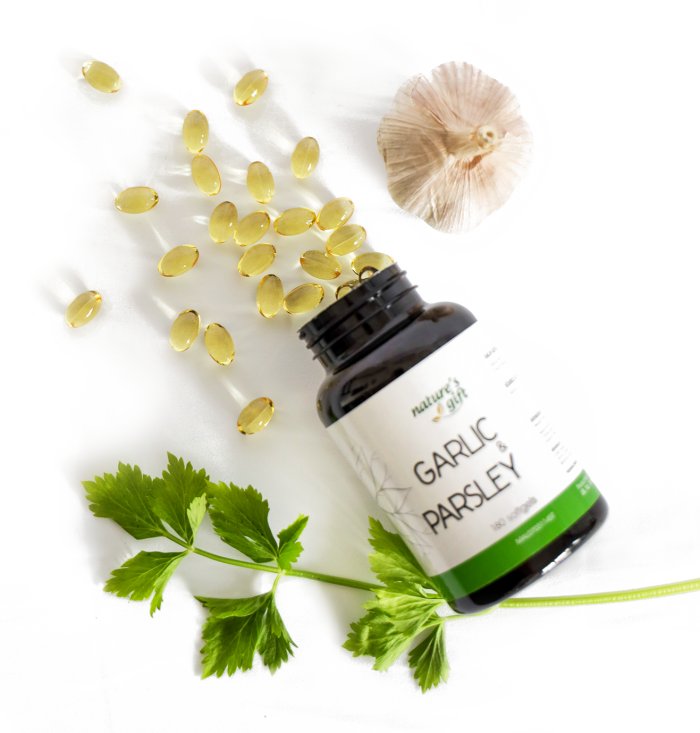
- Garlic & Parsley
Garlic is rich in antioxidants and phytonutrients, including alicin, which has natural antibiotic properties and may also lower the LDL cholesterol in your blood, thus supporting circulatory health. Parsley is rich in a flavonoid called luteolin, which has both antioxidant and anti-inflammatory benefits. Together, NewLife™ Garlic & Parsley help to fortify the immune system and help the body fight viral infections.
Take 2 capsules, 2 times daily.
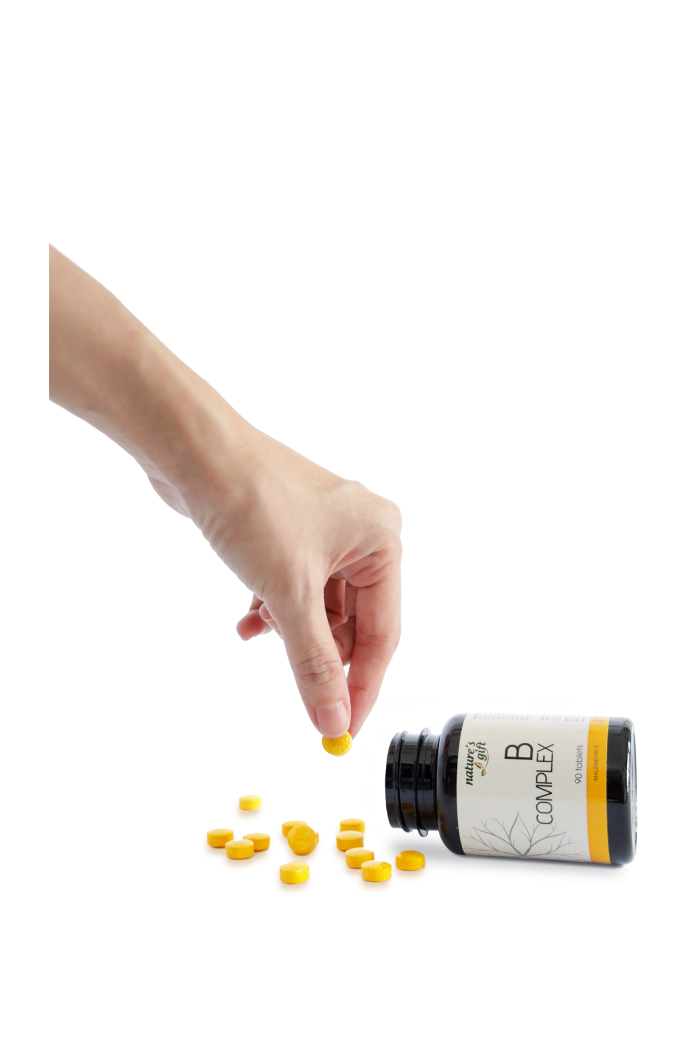
- Vitamin B Complex
The B Vitamins are known to strengthen the immune system and improve the body’s ability to withstand stressful conditions. They also help the body to make immune system cells and can help increase the number of infection-fighting antibodies. In addition to that, they have an important role in white blood cell production, and white blood cells are essential for proper immune system function.
Take NewLife™ B Complex, 1-3 tablets daily.
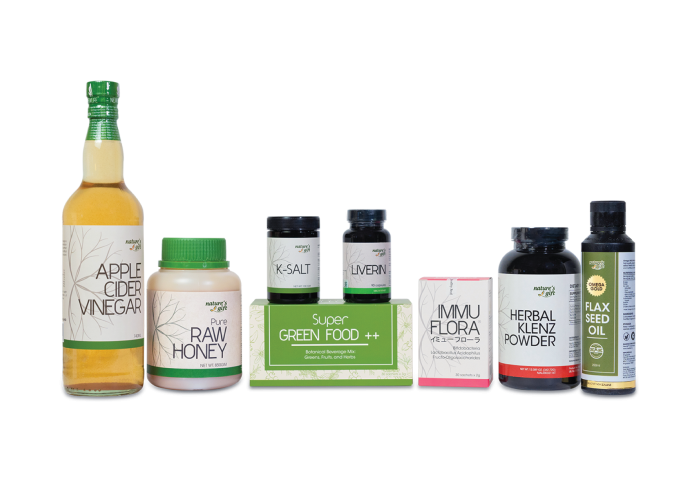
- NewLife™ 6 Essentials
Also known as “6E” for short, NewLife™ 6 Essentials help to cover the nutritional gaps that are found in most people, which are: fibre, friendly bacteria, phytonutrients, potassium, essential fatty acids and liver support. By filling these nutritional gaps, your body is supported in its natural detoxification and cell rebuilding activities, giving it a solid foundation for better health and a strong immune system!
NewLife™ 6 Essentials consists of:
- Herbal Klenz Powder:1 heaped teaspoon in a full glass of water/juice/apple cider vinegar and honey cocktail (a.k.a. Honegar) on an empty stomach twice daily.
- Immuflora:1 sachet daily.
- Super Green Food ++:1 sachet twice daily.
- K-Salt:¼ teaspoon 4 times daily mixed with honegar, water or juice.
- Omega Gold Flax Seed Oil:1 tablespoon twice daily.
- Liverin:1 tablet 3 times daily.
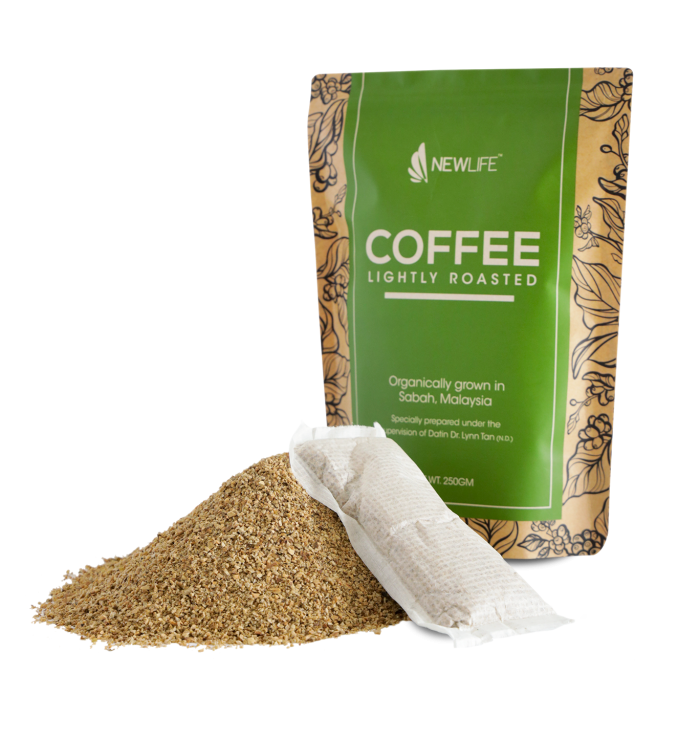
- Coffee Enema
We are exposed to toxins each day from both external and internal sources, and over time the liver can become weak and depleted. This causes inflammation throughout the body which can
contribute to premature aging, fatigue, allergies, cancer and other ailments. Coffee enemas cleanse and fortify the liver in its job as a blood detoxifier. Coffee enemas also boost the production of the antioxidant Glutathione S-transferases, which is a master antioxidant that helps to support the function of other antioxidants while lowering inflammation throughout the body.
The very lightly roasted NewLife™ Coffee is rich in polyphenol antioxidants that help lower levels of circulating inflammatory markers in the liver.
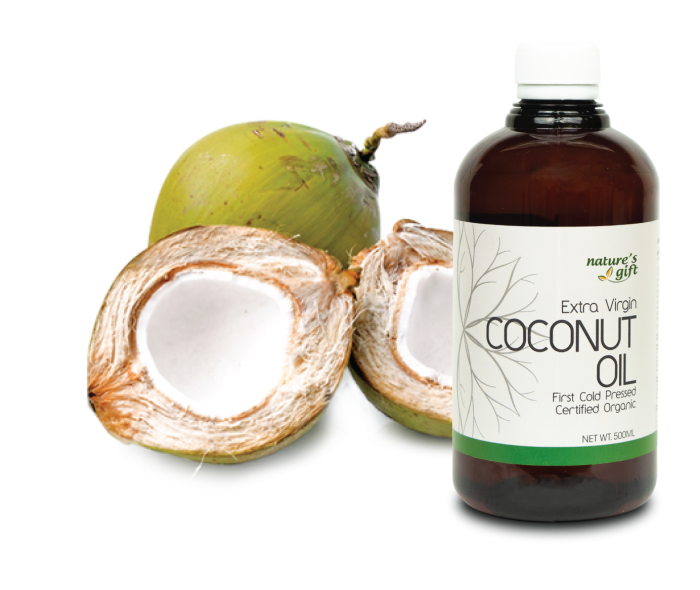
- Extra Virgin Coconut Oil
Coconut oil has been shown to have anti-inflammatory properties by improving antioxidant status and decreasing oxidative stress.
Take 1-2 tablespoons of NewLife™ Extra Virgin Coconut Oil daily. It can be consumed directly or mixed in yoghurt or juices.

- Niacin (vitamin B3)
According to a recent article published in the Journal Nature by a team from China, niacin may help strengthen the lungs and protect lung tissue. The article suggests starting niacin when a cough is developed, may offer some protection from the potential damage caused by viral infections. New research also suggests that high doses of niacin may help to boost the immune system exponentially and protect the body from the world’s deadliest “superbugs”.
Take NewLife™ Niacin, ½-1 tablet twice daily.
Note: Within 20-30 minutes of taking niacin, the blood vessels dilate, some of us may experience a warm sensation spreading across the body. This sensation is commonly known as the ‘Niacin Flush’ and is similar to the feeling you get after a good workout at the gym.
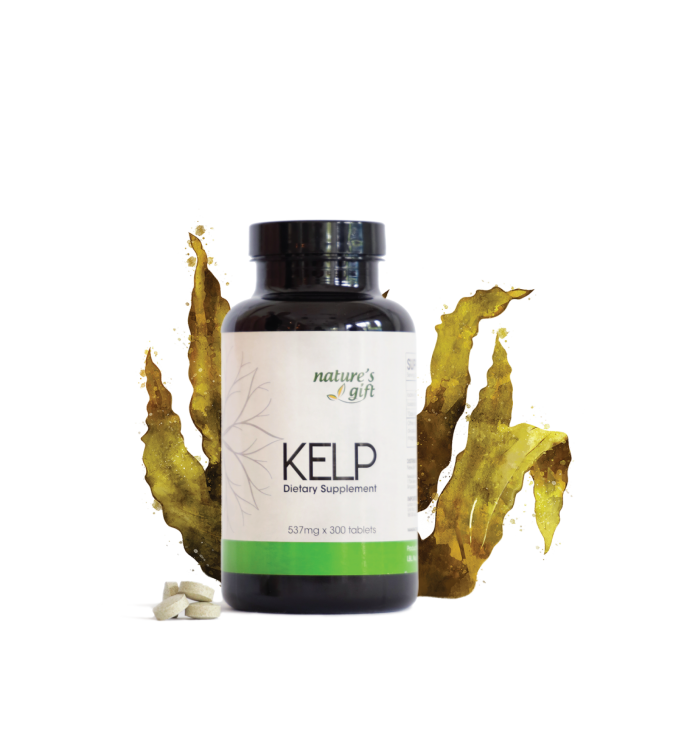
- Kelp
Inflammation and stress are considered risk factors of many chronic diseases, Covid-19 included. Kelp is high in antioxidants including carotenoids and flavonoids, which help prevent inflammation and the harmful effects of stress.
Take NewLife™ Kelp, 5 tablets daily.
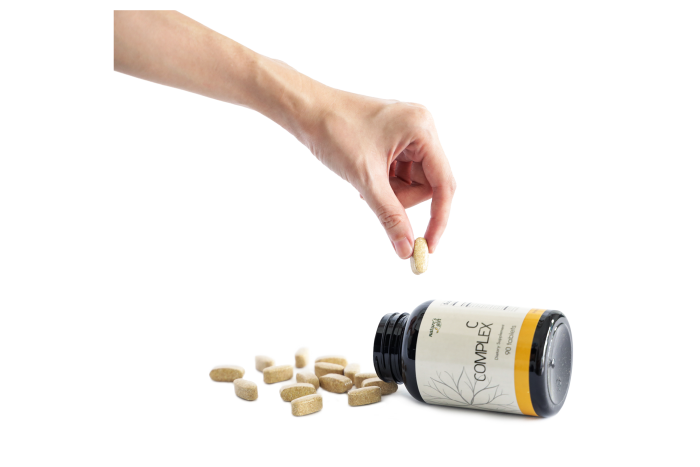
- Vitamin C
Most people are not getting any or enough vitamin C daily. Moreover, as it is water soluble and not stored in our body’s cells, it is important to take vitamin C daily. Vitamin C is a powerful antioxidant and helps strengthen the immune system by supporting the production of white blood cells – a.k.a. the warrior cells that kill pathogens that are trying to invade the body!
We recommend a daily dosage of 50 mg times your body weight in kilograms, rounded to the nearest 1000 mg. For example, if you were 74 kg in weight, you should be taking around 4000 mg of vitamin C daily. This can be split over 2-3 doses within the day.
NewLife™ C Complex is enriched with bioflavonoids to enhance the effects of vitamin C, and is sustained released—providing 40% more utilisation compared to other vitamin C supplements.
In closing, by reducing inflammation, building a strong immune system and living a clean, healthy lifestyle, we do not need to live in fear of bacteria, viruses or diseases!

